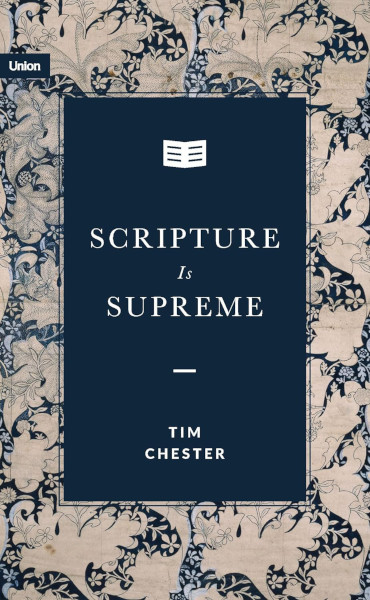Here is rock: all else is sand,
was J. C. Ryle’s (1816–1900) description of the Bible. Today, Scripture retains its unmatched authority, being God-breathed and reliable, transcending all other sources of guidance. Far from a tyrant’s decree, its words echo the voice of Jesus, the compassionate Shepherd who sacrificed Himself for humanity.
Tim Chester delves into this enduring verity in his work, Scripture Is Supreme. He concisely articulates how the Bible bridges realms, connecting Creator with creation, and unveiling divine truths. It emanates from God himself, unveiling his Son and His divine intentions. Through its pages, we not only grasp God’s message but also learn how to live it out.
To say that Scripture is supreme is to say that the Bible has authority in everything that really matters—time and eternity, earth and heaven, humanity and God.
Chester rightly notes that faithful Christians can disagree about the interpretation of Scripture even as they each acknowledge its supremacy. After all, believers have been arguing over the correct ways to honor God for thousands of years. Chester mentions “three truths” that he believes should comfort the Christian who is confused by the mixed opinions within the church.
What we need to know is clear
: The authors of the Bible consistently clarify key doctrines, like Christ’s resurrection and his Lordship. My one point of clarification here is that the sheer volume of heresies—even present during the writing of the New Testament some 30 years after the death of Jesus—speaks to the unclearness of Scripture, even with the big doctrines.We must come with humble hearts
: Reading the Bible requires humility. Approaching Scripture with the attitude that you already know what you need to know will prevent you from learning what the Holy Spirit wants to teach you. No one’s knowledge of God is complete.Be open to the fact that you might be mistaken.
We are not on our own
: We have the wisdom of other believers across time and space to help us in our pursuit of God’s truths. One key hermeneutical policy of interpreters is to look to the writings of Christians who were the students of apostles, or of those who were one or two generations away. The closer in time and proximity the interpretation is to its origin, the better.
The Bible gives us everything we need
(2 Peter 1:3–4) Of this we can be certain. But as Chester points out, there is wisdom found in Scripture for when we don’t know how to handle a situation. Even when the Bible is silent about an issue, it offers guidance on how to address that uncomfortable uncertainty.for a godly life
—not everything for everything.
I enjoyed this short book. (And I should mention that it’s only one part of a ten-book Essentials Series.) Tim Chester clearly and concisely makes his case for the supremacy of Scripture. Amidst the cacophony of conflicting messages of this age, Chester’s book resounds as a clear declaration: Scripture reigns supreme because God reigns supreme.
This is a very short book and not comprehensive on the subjects of Scripture’s inspiration or authority. But I can confidently recommend Scripture Is Supreme to any believer seeking a quick and comforting read. It offers a succinct yet potent exploration of the preeminence of God’s Word.
